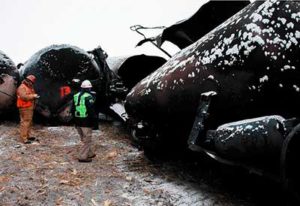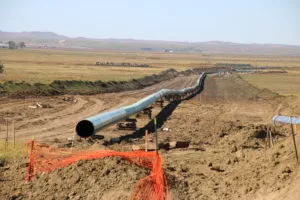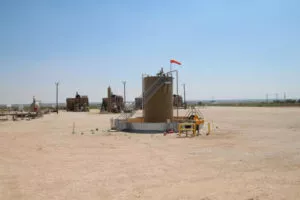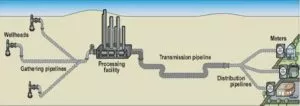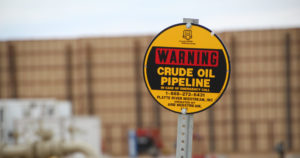Since pipeline development has lagged behind the shale and tar sands oil production booms, industry has increasingly turned to trains, trucks and barges to transport oil to refineries and markets.
Just like pipelines, the alternatives have significant environmental and safety risks.
Trains
Shale oil is more volatile, toxic, and radioactive than other types of oil—causing some trains transporting it to explode, resulting in injuries and deaths. There have been at least 11 significant oil train disasters since the fatal explosion in Lac-Mégantic, Quebec in July 2013 that took almost 50 lives.
Trucks
Increased traffic is both an economic and safety hazard. While only 4% of oil and gas is transported using trucks, more large trucks on the road increase the chance of accidents, spills, and injuries or fatalities.
Barge
Shipping oil and gas has the lowest rate of spills, but because of the high volume of oil and gas per barge, there are significant risks to water resources and a single spill can be catastrophic.
For More Information
- Earthworks Oil Trains: volatile, toxic, radioactive
- Oil Change Crude By Rail hub http://priceofoil.org/rail/
- Oil Change Runaway Train: The Reckless Expansion of Crude-by-Rail in North America
- EIA Refinery Receipts of Crude Oil by Method of Transportation
- Congressional Research Service U.S. Rail Transportation of Crude Oil: Background and Issues for Congress

